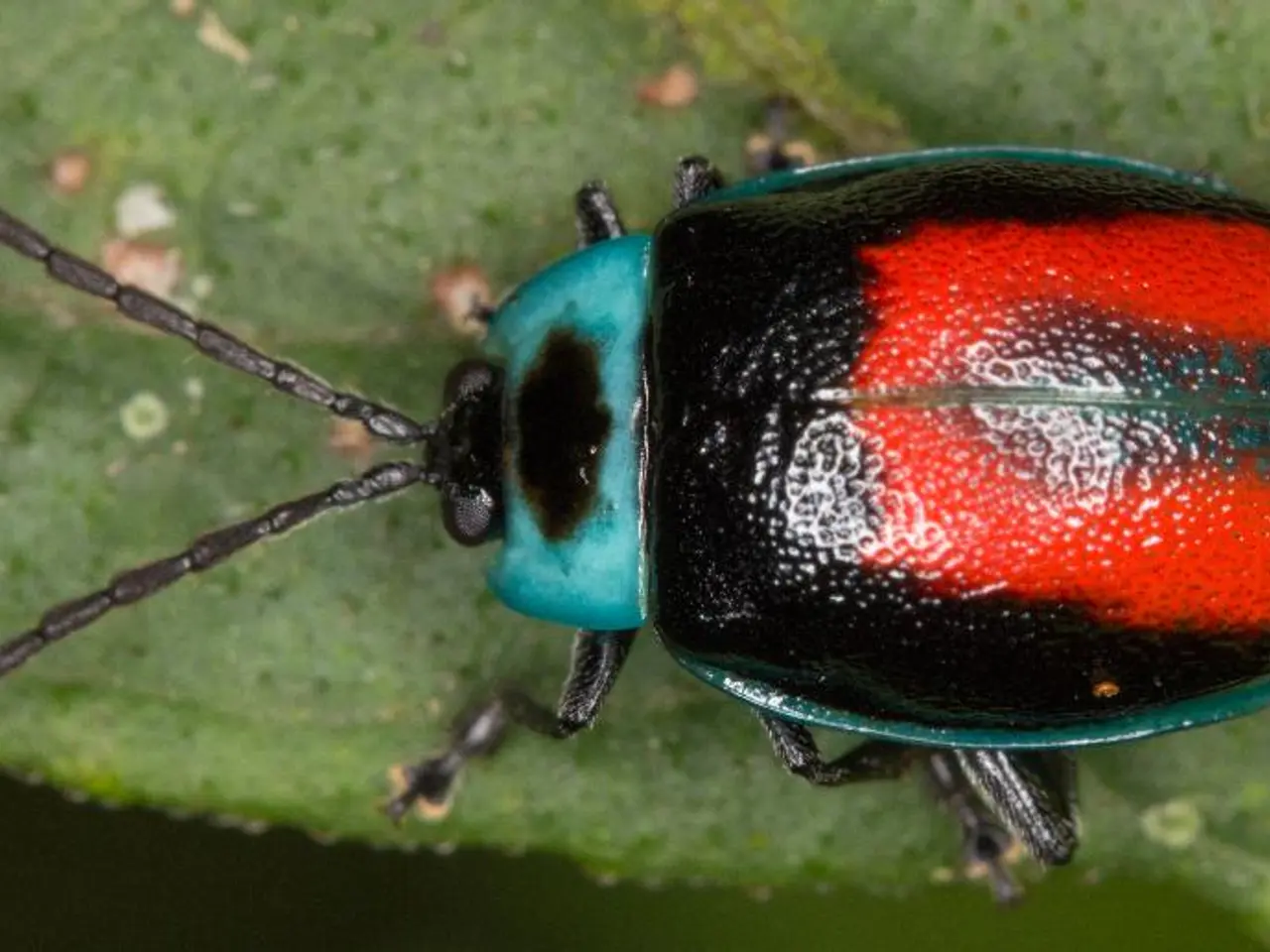Warning Garden Enthusiasts: Six Flora Entice Japanese Beetles - Discover Attractive Substitutes as an Option
Japanese beetles, flashy green insects originating from Japan, have been a nuisance for gardeners in the U.S. since their introduction in the early 1900s. These half-inch long creatures with copper wings are known for their preference for overgrown garden beds, stressed or crowded plants, and bright, sweet blooms.
Japanese beetles can cause significant damage to a variety of plants, including apple trees, roses, peonies, hibiscus, and hollyhocks. They strip leaves to the veins, leaving a lacy look that weakens plants quickly. This can be particularly detrimental to grapevines, a common garden feature.
However, not all is lost. There are several resistant alternatives to these vulnerable plants. Serviceberry trees (Amelanchier spp.), coneflowers (Echinacea spp.), poppies (Papaver spp.), and columbine (Aquilegia spp.) are all resistant to Japanese beetles, making them excellent choices for your garden.
Moreover, growing elderberry (Sambucus canadensis) is a good alternative to grapevines, as it is resistant to these pests. Lilacs, known for their fragrant blooms, are another alternative to roses that Japanese beetles tend to avoid. The 'Ann' magnolia variety is also a compact, cold hardy alternative to roses that Japanese beetles do not prefer.
It's important to note that Japanese beetles are attracted to strong smells and bright colors, particularly soft, wide leaves or sweet blooms. They also prefer hot, sunny days and open areas. This means that a well-maintained garden, with plants that are not overgrown and are spaced appropriately, can deter these pests.
In addition to choosing resistant plants, there are other strategies to protect your garden from Japanese beetles. Traps are available that use a pheromone lure to attract the beetles, but it's crucial to place them far from your desired plants to prevent the beetles from being drawn to them instead.
In conclusion, while Japanese beetles can pose a threat to many garden plants, there are steps you can take to protect your garden. Choosing resistant plants, maintaining a well-maintained garden, and using strategic pest control measures can help ensure a beautiful and beetle-free garden this summer.
Read also:
- Peptide YY (PYY): Exploring its Role in Appetite Suppression, Intestinal Health, and Cognitive Links
- Toddler Health: Rotavirus Signs, Origins, and Potential Complications
- Digestive issues and heart discomfort: Root causes and associated health conditions
- House Infernos: Deadly Hazards Surpassing the Flames








